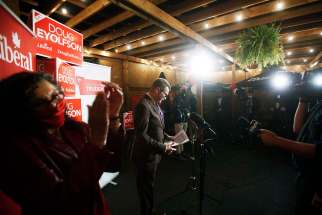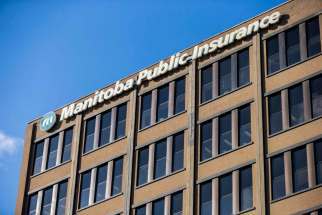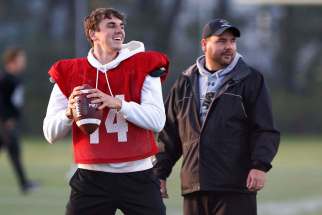Public unlikely to forgive MPI for $113-M cash grab
Read this article for free:
or
Already have an account? Log in here »
To continue reading, please subscribe:
Monthly Digital Subscription
$0 for the first 4 weeks*
- Enjoy unlimited reading on winnipegfreepress.com
- Read the E-Edition, our digital replica newspaper
- Access News Break, our award-winning app
- Play interactive puzzles
*No charge for 4 weeks then price increases to the regular rate of $19.00 plus GST every four weeks. Offer available to new and qualified returning subscribers only. Cancel any time.
Monthly Digital Subscription
$4.75/week*
- Enjoy unlimited reading on winnipegfreepress.com
- Read the E-Edition, our digital replica newspaper
- Access News Break, our award-winning app
- Play interactive puzzles
*Billed as $19 plus GST every four weeks. Cancel any time.
To continue reading, please subscribe:
Add Free Press access to your Brandon Sun subscription for only an additional
$1 for the first 4 weeks*
*Your next subscription payment will increase by $1.00 and you will be charged $16.99 plus GST for four weeks. After four weeks, your payment will increase to $23.99 plus GST every four weeks.
Read unlimited articles for free today:
or
Already have an account? Log in here »
Hey there, time traveller!
This article was published 13/10/2021 (1516 days ago), so information in it may no longer be current.
“It’s easier to ask forgiveness than to seek permission.”
That quote, popularized by U.S. Navy Rear Admiral Grace Hopper in 1982, could see a renaissance as the new corporate mantra of Manitoba Public Insurance.
Last week, the Free Press revealed MPI president and CEO Eric Herbelin devised a plan to divert $113 million in excess revenue from Autopac’s “extension” or optional line of insurance to help cover cost overruns at driver and vehicle licensing. MPI offers the service but is paid for by government general revenue. Although MPI has cut rates and rebated quite a bit of money to ratepayers in the last year, Herbelin’s decision cut those rebates by hundreds of dollars per driver.
It was a risky plan that runs directly against the letter and the spirit of provincial statutes, and a negotiated agreement with the Public Utilities Board that governs acceptable uses for excess revenue from both the basic and extension insurance.
This is where the concepts of permission and forgiveness come into play.
In a perfect world, MPI would have thrown itself on the mercy of the public, and then asked for a green light from all interested parties, including the PUB and all of the interveners that diligently scrutinize Autopac rate applications.
However, instead of taking this to the court of public opinion, or seeking a full and public hearing before the PUB, Herbelin took the first $60 million of revenue in March 2021, with a plan to take another $53 million in March 2022.
He made every effort to keep that plan under wraps for as long as possible.
Opposition parties in the legislature and PUB interveners are obviously outraged at what MPI has done and the half-hearted defence that Premier Kelvin Goertzen provided for Herbelin’s actions.
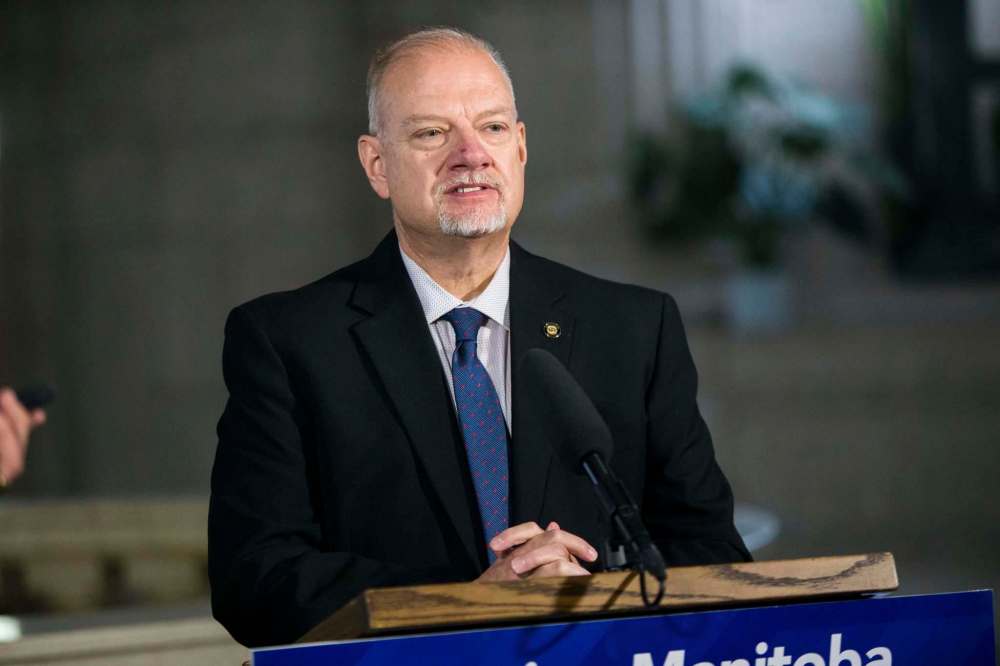
Repeatedly, Goertzen has denied any effort was made to conceal the plan. He has also adopted a tenuous MPI claim the transaction is fully legal under both statutes and PUB revenue management agreements. It is likely the PUB and interveners will beg to differ.
But it’s what Goertzen isn’t acknowledging that tells the whole story.
Goertzen refuses to acknowledge that Herbelin — when questioned by NDP Leader Wab Kinew at a legislative committee in early June — made no mention of the $60 million. He did admit a plan was under development to address the driver and vehicle licensing shortcomings; he did not admit he had already put that plan into effect.
Or, that MPI’s quarterly report, dated April 1, contained no note about the $60 million.
Or, that a June 28 news release announcing MPI’s 2022 rate application to the PUB, failed to mention the $60 million.
Goertzen and Herbelin claimed they have been totally transparent about this plan. But if this qualifies as transparent, Manitobans can be expected to shudder at the thought of what behaviour both men would consider duplicitous.
Goertzen and Herbelin claimed they have been totally transparent about this plan. But if this qualifies as transparent, Manitobans can be expected to shudder at the thought of what behaviour both men would consider duplicitous.
Having failed at permission, we now find ourselves at that stage in the narrative where MPI seeks some form of forgiveness at PUB rate hearings, which started this week.
Does MPI have a case? Even though the execution was lacking, it is not hard to see the logic behind Herbelin’s plan.
MPI was suddenly flush with cash because of a massive decline in claims after pandemic restrictions effectively suspended the daily commute. At the same time, the Crown insurer was facing huge financial pressures that were largely the result of the PC government’s refusal to cover the cost of driver and vehicle licensing, as it is legally obligated to do.
Why not take some of the revenue windfall and apply it against cost the current government refuses to cover?
One can only imagine what would have happened if Herbelin had asked for an audience with the PUB and floated his plan to the interveners and the public. There is, in theory at least, a strong case that using an Autopac windfall to cover driver and vehicle licensing costs would ultimately be the best for Autopac customers.
Why not take the whole plan above board and seek permission? History has shown that when the government tries to do anything creative with Autopac revenue, there is blowback.
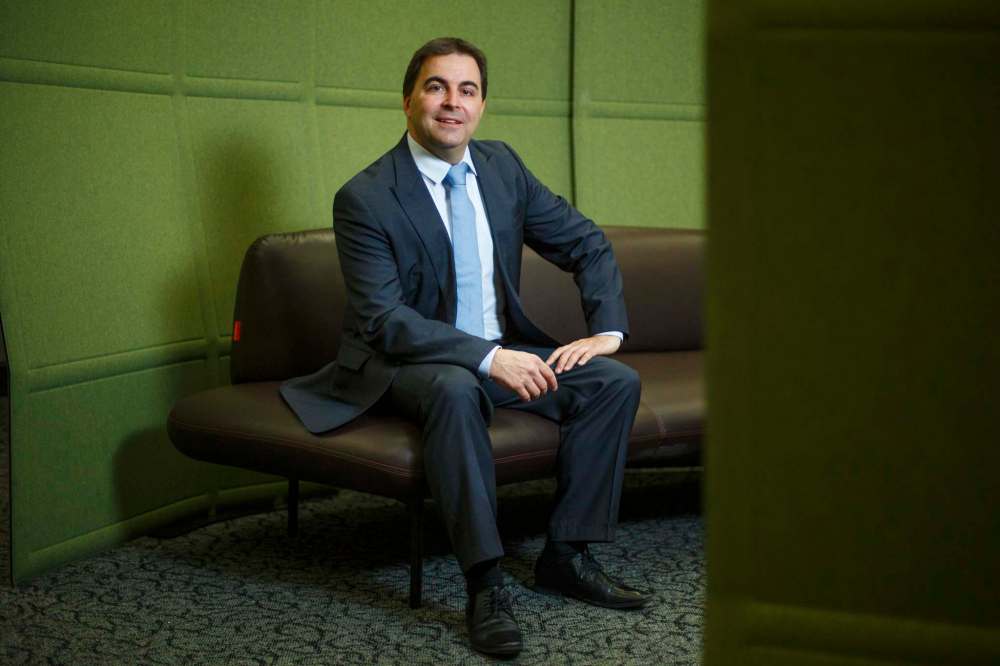
The former NDP government learned that first-hand when it tried to use Autopac money to support universities and colleges. The interesting idea died under a hail storm of condemnation from Autopac customers.
On the other hand, there is at least one instance when it did work out.
The NDP had more success a few years later when it used MPI money to encourage drivers of older vehicles to get ignition immobilizers installed. Again, subsidizing immobilizers was outside MPI’s legal mandate, which is to provide the lowest-cost auto insurance. But the core argument — that immobilizers would cut down on stolen cars, which would in turn lower claims costs — turned out to be completely valid.
The bad news for Herbelin and MPI is that the way in which they addressed the driver and vehicle licensing shortfall — which can correctly be described as disingenuous — may obscure any valid argument.
In the end, MPI did not make any attempt to seek permission. Given the way people are reacting to what Herbelin did, there’s only a slim chance of forgiveness.
dan.lett@freepress.mb.ca

Born and raised in and around Toronto, Dan Lett came to Winnipeg in 1986, less than a year out of journalism school with a lifelong dream to be a newspaper reporter.
Our newsroom depends on a growing audience of readers to power our journalism. If you are not a paid reader, please consider becoming a subscriber.
Our newsroom depends on its audience of readers to power our journalism. Thank you for your support.





